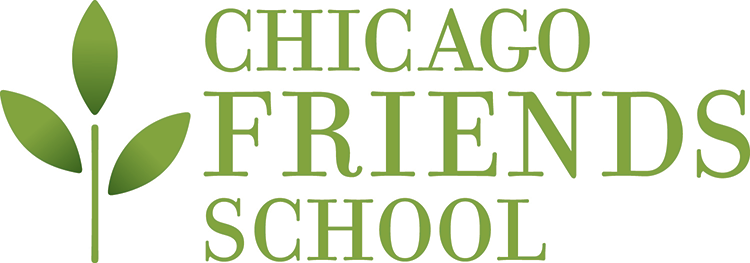Ed note: As we start a new school year, I thought that new parents might want to read this meditation about the mission of the school that also featured in last year’s newsletter.
Why does Chicago Friends School exist? What are we trying to do? We are trying to make students who will make a better future.
Let’s stop and think about that for a second: Making a better future. It’s easy to be discouraged about the world right now. There’s a lot going on that is upsetting and scary. It is easy to feel that the future will be worse. The world faces huge, complex problems that do not have simple solutions: war; pandemic; climate change; racism; an increasing gap between the rich and poor; a turn to authoritarianism; deep questions about how the Earth’s resources can be equitably shared; increasingly fractured, angry, and polarized political and social discourse. And, closer to home, an epidemic of anxiety and depression among the young, with increasing levels of disconnection. We are as a society – despite all our ways of connecting with each other – increasingly lonely and isolated.
So then, how does an elementary school, much less one with 30 kids, help any of this? Step by step. Brick by brick. Lesson by lesson. Interaction by interaction. That’s how.
How does an elementary school help kids be ready for the complex problems of the future? By starting at an early age to provide lessons that illuminate complexity, that allow kids to recognize that not everything has one simple answer, we help them to be ready to do two things: tackle hard multifaceted problems, and persevere when they don’t get to the answer right away.
How does an elementary school help promote peace, and eliminate the desire to turn to authoritarianism? By giving them tools to solve conflict from a young age that make it clear that they have to talk, state their emotions and advocate and listen, not just ask a teacher or other authority to solve their problems, as we do every day.
How does an elementary school help kids become engaged citizens? By giving them opportunities to speak up, valuing their contributions, but then also asking them to take responsibility for their commitments. Giving them opportunities to speak, but responsibility with it – as we did this year, when our middle schoolers had the opportunity to weigh in on either side of the Gaza war with their alderpeople during debate over Chicago’s ceasefire resolution.
How do we learn to live with an unpredictable world? By showing the world that we are compassionate in the face of violence, but we will not be pushed out of engaging in our community because of it, as we did when we showed compassion and support to the students of Senn High School after a shooting last winter.
How do we teach our kids to make community even in the face of diverse opinions? By giving time and space for student thought and modeling reflective listening. This was brought home for me when, during one silent community meeting time, a student asked the question of why a good God allows bad things to happen, and students from different religious backgrounds or no religious backgrounds respectfully shared their thoughts without shame or judgment.
How does an elementary school teach kids that they can make positive change in the face of large problems? By giving kids opportunities to know that they can help. By providing opportunities for genuine, consequential service we teach that things aren’t hopeless, as we did when we put on a field day for the Venezuelan migrants who are living yards from our front door at the Broadway Armory.
How do we combat the epidemic of loneliness and isolation? By making school a place where students’ whole selves are welcome, and where the adults in the community model bringing their genuine selves as well.
Since starting at CFS, I have had moments in which I doubt whether we are doing enough, whether our tiny school will actually make a difference. But the thing I am comforted by is this idea: As we begin, so shall we proceed. The things that are bedrock in us, begin early and repeat often. Brick by brick. Lesson by lesson. Day by day. We are trying to make the world a better place.

Karen Carney
is the head of school. Karen’s career demonstrates a rich and diverse set of skills: project oversight, curriculum development, educator training and mentoring, and classroom instruction. Prior to coming to Chicago Friends School, she worked as a senior specialist in science curriculum for American Institutes for Research. Before this, she oversaw educational programming at the Adler Planetarium, first as its director of education and then as associate vice president for visitor experience and learning. She has also worked in instruction and teacher development at the University of Illinois at Chicago’s Learning Sciences Research Institute and has authored more than 20 scholarly papers, book chapters, and conference presentations.
Karen is an active, dedicated Friend (Quaker) and has held various leadership positions at the Evanston Friends Meeting. She enjoys baking, cooking, and painting and is a member of the Playmation improv comedy team.